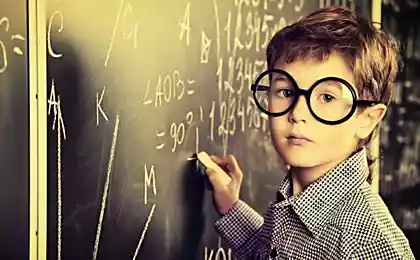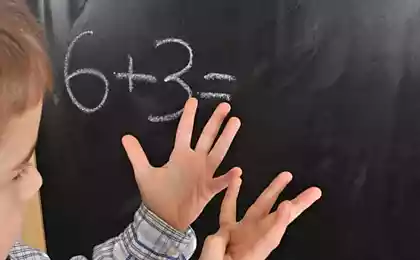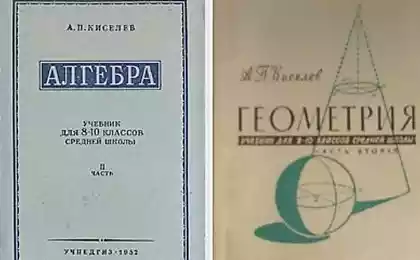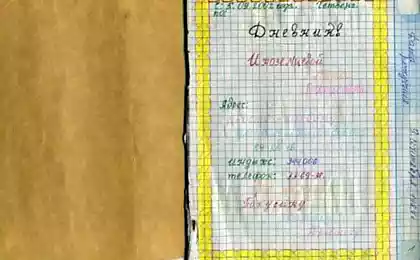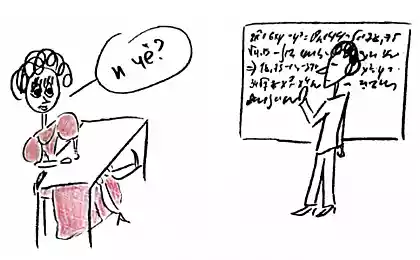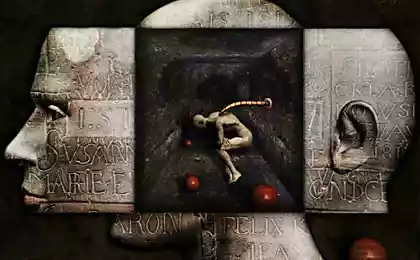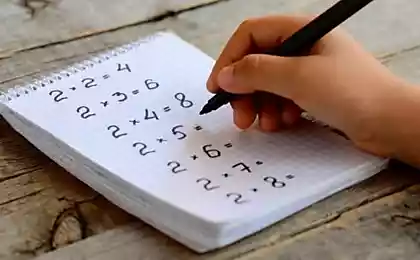804
Schoolchildren first asked to solve an example and then explain how
In recent years, Singapore has been actively used method of teaching children math, entitled "Productive failure» (Productive failure), proposed by the head of the Research Laboratory of the National Institute of educational processes of Education Manu Kapoor (Manu Kapur).
According to the author, his way to a much more productive than the usual version with direct sequence of lectures and workshops.
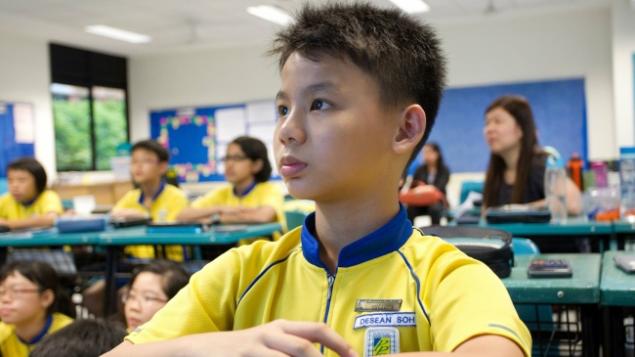
The idea Kapoor, students first offer to try to solve the example or the equation, and only then explain how it was necessary to do it. The scientist believes that studying so children better remember information compared with their peers who get knowledge familiar way.
Solution Kapoor seems both productive and counterproductive:
people actually learn better from our mistakes,
but unsuccessful attempts to solve the equation of unknown can deprive children of self-confidence.
The Ministry of Education has allocated for research Kapoor $ 1 million, including $ 460,000 for training teachers of grades 11 and 12 for the collection of statistics obtained.
Kapoor himself acquainted with this concept when he studied at the National University of Singapore. He spent four months trying to solve the nonlinear differential equation from the field of fluid dynamics, is the teacher did not explain to him that this one mathematics is not enough - it was necessary to use a predetermined calculation algorithm.
When Kapoor asked the teacher why he allowed him to spend as much time "wasted», he replied that it is not: in 4 months the student has thoroughly studied the issue, and it is now well understood.
In 2013, Manu Kapoor conducted an experiment on students in grade 9 private Indian schools. He gave them a task that has been solved with the help of the standard deviation, which they did not know.
The pupils were divided into two groups: members of one of them asked for 30-45 minutes to look for solution of the problem, and then explained how to cope with it, and the other parties have explained everything first, and then gave a practical task. Then, both groups have tested.
The study showed that both groups equally well coped with ready-made formulas, but those who have passed through the "productive failure", a better understanding of the problem and adapt to its modified versions.
Kapoor conducts its tests in 2003. Since then, they have successfully reproduced in the United States, Germany and Australia, but the method of teachers is causing mixed reactions. Many teachers find ways to effectively, but are worried that it may not be appropriate for the solution of standard tests and preparing for state exams.
In addition, such training seems difficult not only to students but also to teachers: it is easier just to share their knowledge than to explain students what they were wrong.
Kapoor believes that a standard way of learning "closes minds" of children: with one solution, they will not try to look for other, perhaps more creative.
11 free resources for education
7 principles of Finnish education
The modern model of education does not work
via tjournal.ru/p/singapore-stufy-fail
According to the author, his way to a much more productive than the usual version with direct sequence of lectures and workshops.

The idea Kapoor, students first offer to try to solve the example or the equation, and only then explain how it was necessary to do it. The scientist believes that studying so children better remember information compared with their peers who get knowledge familiar way.
Solution Kapoor seems both productive and counterproductive:
people actually learn better from our mistakes,
but unsuccessful attempts to solve the equation of unknown can deprive children of self-confidence.
The Ministry of Education has allocated for research Kapoor $ 1 million, including $ 460,000 for training teachers of grades 11 and 12 for the collection of statistics obtained.
Kapoor himself acquainted with this concept when he studied at the National University of Singapore. He spent four months trying to solve the nonlinear differential equation from the field of fluid dynamics, is the teacher did not explain to him that this one mathematics is not enough - it was necessary to use a predetermined calculation algorithm.
When Kapoor asked the teacher why he allowed him to spend as much time "wasted», he replied that it is not: in 4 months the student has thoroughly studied the issue, and it is now well understood.
In 2013, Manu Kapoor conducted an experiment on students in grade 9 private Indian schools. He gave them a task that has been solved with the help of the standard deviation, which they did not know.
The pupils were divided into two groups: members of one of them asked for 30-45 minutes to look for solution of the problem, and then explained how to cope with it, and the other parties have explained everything first, and then gave a practical task. Then, both groups have tested.
The study showed that both groups equally well coped with ready-made formulas, but those who have passed through the "productive failure", a better understanding of the problem and adapt to its modified versions.
Kapoor conducts its tests in 2003. Since then, they have successfully reproduced in the United States, Germany and Australia, but the method of teachers is causing mixed reactions. Many teachers find ways to effectively, but are worried that it may not be appropriate for the solution of standard tests and preparing for state exams.
In addition, such training seems difficult not only to students but also to teachers: it is easier just to share their knowledge than to explain students what they were wrong.
Kapoor believes that a standard way of learning "closes minds" of children: with one solution, they will not try to look for other, perhaps more creative.
11 free resources for education
7 principles of Finnish education
The modern model of education does not work
via tjournal.ru/p/singapore-stufy-fail




